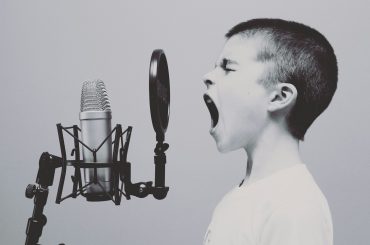From time to time I teach an eight week class at the Recovery Cafe San Jose called “Befriending Your Body”. A simple seated yoga practice combined with breathing techniques and meditation after a check in make for a lively session with the students. Combining some recovery oriented discussion with mindful movements is a way for us all to re-inhabit our bodies. (Recovery Cafe San Jose is a place where people can recover themselves, their sobriety and their dignity with loving community, good food, the arts and holistic practices.)
Addiction is a way to lose ourselves. We evade and avoid emotions and memories with active use. Whether the feelings are physical such as pain, or emotional; anything from boredom to terror, the click of a chip, the wink of an eye, the pop of a drug can change all that. We can move to a sensation that we know – comfortably numb or predictably jacked up.
In fact after years of using I forgot completely what genuine feelings were. I forgot what the minor sensation of discomfort was as well as the warning signs of hunger, exhaustion or contentment. I had totally dulled the sensations in my body to the point that, if I felt anything I was sure it meant I hadn’t used enough drugs, drunk enough booze, or any of another number of excesses that kept me distracted from life.
Fast forward to the present. I have learned the gift of rewiring my body to my brain. I had spent so many years disconnecting my head from my body, not to mention my head from itself, that I was not longer able to accurately and with trust determine my feelings. It has taken me time to get them both back in synch.
I teach a slow contemplative style of yoga. I encourage students to talk to their bodies: to sometime poke it with their fingers to get the brain and the body on the same page. It is OK to touch your tummy to feel how it inflates and deflates with a full breath. Sometimes you have to touch your hip bones to know exactly where they are, rather than where you THINK they are. When you move quickly through poses you may not become aware of your actual posture. You may, indeed, speed through a transition from pose to pose and actually hurt yourself. This is the beginning of learning how your body feels.
Your emotions start in your gut, in your chest, sometimes even in your bowels.Your heart pounds in fear or anticipation, a loud noise can cause a quick cramp in your intestines and your arms to twitch, you can get butterflies when thinking about a certain someone. If you are unfamiliar with the body tones and cues you might miss important information: you are weary, you are afraid, you are feeling warning signs, you are having fun. You get all these messages from your belly brain but may not be used to listening when it talks.
GEEK ALERT: Here is the science. Bo Forbes, a leading yogi in drawing the gut to brain connection, teaches workshops to delve into the interrelation between the nervous system in the gut and the communication with the central nervous system: particularly as it affects our mood. This is the enteric nervous system. It is primal. It gives us alerts us to situations on an intuitive, non-verbal and instinctual level. We addicts have learned to systematically shut down this information source. Or, when we heard it, we were reactors rather than responders: to a situational input not listening to it as a source or resource. One of the goals of both recovery and yoga is to figure out a way to respond to life on life’s terms rather than react.
The body perception, one of our many senses, needs to be reconnected: what I call getting your body and nervous system back “online”. That is what we do in the “Befriend Your Body” class. With mindful movement and attention to sight, sound, smell, touch, internal sensations, body placement and more we bring the senses and the nervous system back into unity: body, mind and spirit.
You, too, can do this. Take time to feel where you are sensing disappointment, joy, anticipation, fear. Notice what happens to your breathing when you are having feelings? When you are having feelings what is happening to your breath? Can you determine your mental state? Can you soothe it with deeper more conscious breathing? Where in your body to you sense fatigue when you feel tired? Can you rest and then re-engage? What is your busy brain telling you? Is there a quarrel between the ideas in your head and the experiences in your body? Can you negotiate a balance?
Another way to reacquaint yourself with the wisdom of your body is to take a yoga class (or dancing mindfulness, or qi gong). Note how you feel before you start a class. Write it down. Then, become aware of the sensations in the practice and after you complete the practice. Body, mind and spirit- how do you feel? Write that down. When your body speaks believe it. Not the reticent mind, the mind of “let’s do this later”, :this is silly” or “what will this help?”. Listen to the body that wants to stretch and move. Listen to that. Give it a try.
I have days where I resist. I promise myself “twenty minutes- tops” and start my practice. And more often than not I continue. My mind resists, then my body persists. I have to practice keeping my body and mind connected so that I can remain in tune with my enteric nervous system. I have learned to listen to my belly brain to teach me; to lead me to enforce my boundaries and to embrace my joys. And that is what recovery is all about for me.






2 Comments
Thanks Kyczy, that was interesting stuff and, on an experiential level, makes a lot of sense to me. Reconnecting with life after years of addiction seemed to me like a process of reconnecting with my body as a whole in terms of what it was telling me about feelings, needs etc etc. Smoking and drinking for instance, completely skewed my notion of what hunger was all about, and it was a physical signal I actually had to re-learn. It reminded me of that John Carpenter film ‘Starman’ where Jeff Bridges, playing an alien inhabiting a human body, says something like, ‘This body feels a terrible emptiness.’ Karen Allen looks at him quizzically and then realises that what he’s actually saying is that he’s hungry!
That just about explains how it was with me. In AA there’s the HALT concept: ‘Hungry, Angry, Lonely, Tired’ – dangerous moments where it pays to actually recognise what it is that your feeling and deal with that actual feeling/need, rather than reaching for something to kill it.
So far it’s worked for me!
Thank you for your feedback. I can get consumed (ha ha ) with this topic. As a yogi I scan my body for my feelings and my brain for how I am interpreting and responding. The H.A.L.T. is the first scan I do. I love that image / statement from that movie. That says it succinctly. Be well